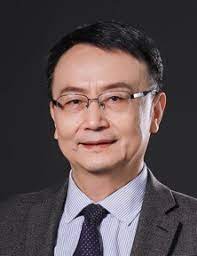The 'Imposed' Strategic Competition
- Video Commentary
- May 19, 2023

- Qingguo JIA
- Professor, Peking University

Dr. JIA Qingguo, a Professor of the School of International Studies at Peking University, analyzes the Chinese government’s position on the term “strategic competition” and explains why the United States, and not China, is responsible for the deteriorating bilateral relationship. Highlighting the series of recent anti-China measures by the Congress and the changing nonproliferation policy in the Biden administration, Professor Jia argues that it is natural for the Chinese government to rethink its national strategy including its nuclear policy of minimum deterrence and no-first-use for its own interest. Finally, Professor Jia urges the U.S. to refrain from meddling with China’s territorial integrity and sovereignty over Taiwan and instead seek ways to cooperate.
This content is an excerpt from the first session of the Global NK International Conference held on May 10, 2023. The session was titled, "Nuclear Competition and Security Challenges in East Asia: DPRK Policies of ROK, US, and PRC, and the Scenarios of Military Confrontations."
I. The term “strategic competition” is “untraditional, misleading, and U.S.-imposed.”
• The term “strategic competition” is “imposed” on China by the U.S., and China has never accepted this term. China believes that this term does not adequately capture the complicated bilateral relationship. Outright “public” competition is untraditional for Chinese—instead, Chinese tend to compete under the table.
II. U.S. attempts to revise the commitments established during China-U.S. normalization.
• United States’ determination to engage in a “strategic competition” has resulted in a distinct pattern of behavior that makes the relationship more difficult and confrontational. Trump and Biden have both been pursuing high-tech decoupling, supply chain redirection, and military preparation in places of China’s interest.
• Of all U.S. actions, China is most concerned about U.S. challenge against the territorial sovereignty and integrity over Taiwan. Under this circumstance, China is rethinking its national strategy.
• Since Biden came into office, U.S. policy toward China has become less volatile and outright provocative. Yet Congress poses the problem—it has become increasingly proactive over Taiwan, passing bills and resolutions unfavorable to China.
• While U.S. “containment” policy against China aims to take away China’s stake in the international order, China must be stronger and more capable to “wreck the [U.S.-led] order” if it finds interest in doing so.
III. If U.S. continues pressuring China on Taiwan problem, China must reconsider.
• China’s nuclear policy has been based on three pillars: (1) minimum in number, (2) no first use, and (3) nonproliferation. With growing U.S. threat, there is growing voices in China calling for a stronger stance.
• In short, U.S. should stop meddling with Taiwan and engage with China. It is never too late to stop confrontation and seek cooperation. ■
※ Please cite accordingly when referencing this source.
■ JIA, Qingguo is a Professor of the School of International Studies at Peking University.
■ Typeset by Jisoo Park, Research Associate
For inquiries: 02 2277 1683 (ext. 208) | jspark@eai.or.kr